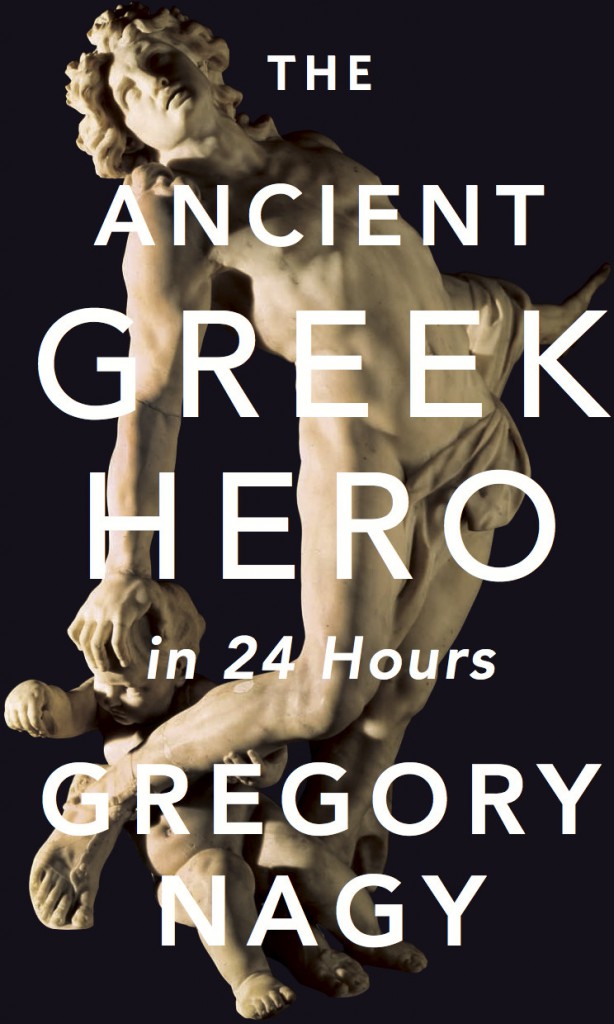{Socrates is speaking:} Hold it right there. Tell me this, Ion—respond to what I ask without concealment. When you say well the epic verses and induce a feeling of bedazzlement [ekplēxis] for the spectators [theōmenoi]—as you sing of Odysseus leaping onto the threshold and revealing himself to the suitors and pouring out the arrows at his feet, or of Achilles rushing at Hector, or something connected to the pitiful things about Andromache or Hecuba or Priam—are you then in your right mind, or outside yourself? Does your mind [psūkhē], possessed by the god [enthousiazein], suppose that you are in the midst of the actions you describe in Ithaca or Troy, or wherever the epic verses have it?
(Gregory Nagy: The Ancient Greek Hero in 24 Hours, Hour 0 Text G)
ΣΩ. Ἔχε δή μοι τόδε εἰπέ, ὦ Ἴων, καὶ μὴ ἀποκρύψῃ ὅτι ἄν σε ἔρωμαι· ὅταν εὖ εἴπῃς ἔπη καὶ ἐκπλήξῃς μάλιστα τοὺς θεωμ έ νους, ἢ τὸν Ὀδυσσέα ὅταν ἐπὶ τὸν οὐδὸν ἐφαλλόμενον ᾄδῃς, ἐκφανῆ γιγνόμενον τοῖς μνηστῆρσι καὶ ἐκχέοντα τοὺς ὀιστοὺς πρὸ τῶν ποδῶν, ἢ Ἀχιλλέα ἐπὶ τὸν Ἕκτορα ὁρμῶντα, ἢ καὶ τῶν περὶ Ἀνδρομάχην ἐλεινῶν τι ἢ περὶ Ἑκάβην ἢ περὶ Πρίαμον, τότε πότερον ἔμφρων εἶ ἢ ἔξω {c} σαυτοῦ γίγνῃ καὶ παρὰ τοῖς πράγμασιν οἴεταί σου εἶναι ἡ ψυχὴ οἷς λέγεις ἐνθουσιάζουσα, ἢ ἐν Ἰθάκῃ οὖσιν ἢ ἐν Τροίᾳ ἢ ὅπως ἂν καὶ τὰ ἔπη ἔχῃ;
Plato Ion 535b–c
Members can comment on this passage in the Forums.
